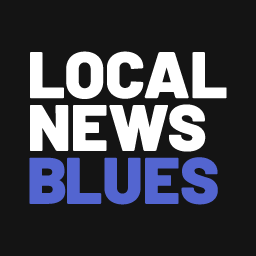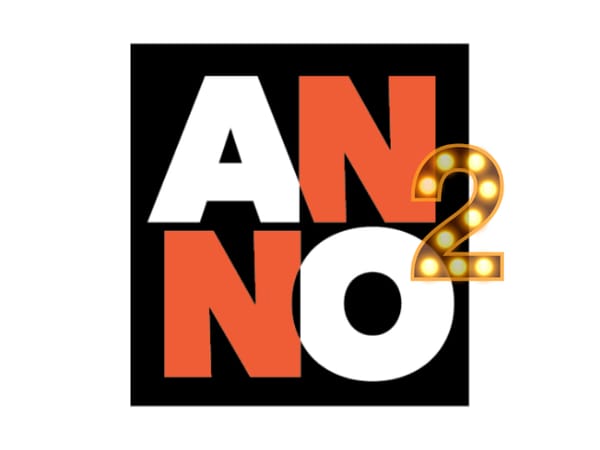Hey, Press Forward, don’t forget us.
Lots of people are clamoring for Press Forward’s resources, yet the biggest voices seem to either have lots of money already or don’t even do journalism.

By Amos Gelb
Next week, invited members of the American media will make the pilgrimage to Miami to experience the modern equivalent of the royal court: the Knight Media Forum (KMF).
The event comes at a critical time, as we watch the Titanic (The Messenger) and the Hindenburg (Sports Illustrated) repeat tragic history while other north stars like the L.A. Times and the Wall Street Journal have been shaken by devastating earthquakes. And then there is the Houston Landing, which seems determined to snatch defeat from the jaws of victory. As we watch the media meteor shower, you have to wonder what it portends for us locals.
This year’s KMF amounts to the de facto coming out party for Knight Foundation VP Jim Brady’s and MacArthur Foundation President John Palfrey’s mega-initiative, Press Forward, which is destined to reshape American journalism for good or bad. Nobody in local journalism, as far as I can tell, has anything more than conjecture as to what is coming via Press Forward, but the trailer seems to be pretty clear:
The usual suspects: As the inimitable Alice Dreger noted in a recent Local News Blues post, Press Forward’s first big spend was on the usual suspects, with a note from Palfrey saying they were sticking with known quantities like Documented, URL Media, and Outlier Media. Palfrey openly acknowledged that first-round recipients were folks the funders had existing relationships with. The implication: if you are not inside that party already, don’t get your hopes up.
Going big: Knight’s recent big journalism spending has been on NewsPack, BlueLena, and a couple of universities, reiterating Brady’s mantra that it is a waste of money to throw money at one-offs, i.e., actual independent local journalism outfits. If it can’t scale hugely, don’t bother.
BIPOC power: We have all heard loud and clear of the powerful and persuasive lobbying that has effectively ensured BIPOC journalism is sitting at the table. (Good on them!)
So, I offer a cris de coeur for all of those forgotten at the bottom of the draft, the Brock Purdys of American journalism, the last draft choice, Mr. Irrelevant: The non-BIPOC independent locals.
Don’t forget us.
Please.
There are lots of people clamoring for Press Forward’s resources, yet the biggest voices seem to either have lots of money already or don’t even do journalism. I respect and admire Jim Brady, but in the end, journalism serves individual communities and so, by definition, defies the kind of systemic impact that all evidence suggests is a requirement for Press Forward qualification.
What brings me dread is all the money going to folks who are journalism-adjacent, folks who don’t do journalism but claim to support it while soaking up scarce money – an issue that was raised in a pair of recent Nieman Lab articles (here and here).
The latest example came just this week when INN announced to great fanfare that it's launching a national platform called On the Ground. This will be a new place for all of us doing the actual journalism to share our local election-related reporting…for free. The suggestion was we should be so excited to join.
But hang on. Isn’t this the issue we’ve had with Facebook and Google, that we have been expected to share our work for free?
Someone dared ask on the INN listserv where the funding for On the Ground was coming from. No answer. Wherever it is coming from, it means national funding is again going to INN and not the folks doing local journalism. I am all for sharing our work, but realistically I could use an extra $20k to give my editorial staff raises rather than seeing those funds go to build a fancy new platform and pay INN staff to run it.
INN has grown from fewer than 6 employees to 23 over the last few years, all funded by money supposedly helping non-profit journalism. Meanwhile, NewsPack and BlueLena, newly flush with big Knight grants, have recently introduced new staff and posted new positions to promote their work while those of us doing real local news reporting are scraping by just working to retain the staff we currently have.
Despite all this funding of groups like NewsPack and BlueLena, LION and other reputable sources have stated recently what experience has shown us, that subscriptions and paywalls don’t result in sustainable economics (except for a few like the Guardian). This is true even as operations like BlueLena and NewsRevenueHub build healthy businesses taking fees and foundation dollars for offering the promise that growth in audience size and memberships will save the day for us.
I see two issues here.
First, perhaps I am wrong, but we would seem to be heading back to the audience-dependent model that doomed old journalism. And we’re now in a more problematic environment, because newspapers and TV had a virtual monopoly on information distribution until the internet came along.
Second, realistically, a paying audience of the size needed for sustainability simply does not exist for most of us. Just ask the Baltimore Banner, which is having to struggle to adequately expand its paying membership despite having a sophisticated/funded audience growth strategy in a city hungering for reliable news.
The irony of it all was summed up for me on a recent call with one of the more recent INN staff additions. When I raised the issue of the staffing growth at INN, I got snapped at for daring to question such a thing. I was then given a stern lecture on the comparative value of news-adjacent employees versus those actually doing journalism.
Last summer, when Brady told me about this exciting new funding model he was developing, I proffered my fear that Press Forward money would go to the same handful who have become the chosen few among local journalism organizations and to the national folks not actually doing reporting. He told me at the time that they had discussed this and, if that is what ultimately happens, they will have failed.
In Miami, we will hopefully start to see what Press Forward actually looks like.
Fingers crossed.
Publisher's update: Shortly after this post was published, INN responded to Gelb’s question about the source of funding for On the Ground, writing, “Google News Initiative gave INN funding to examine and develop prototypes of shared products that extend the reach of nonprofit newsrooms.” INN has not disclosed the amount of funding it received for these “shared products” and has not said how much will be spent for On the Ground.
Amos Gelb, founder and publisher of D.C. Witness and Baltimore Witness, is a multi-Emmy Award-winning broadcast journalist and director of the Washington Media Institute, the premier experiential media program in the United States. Read more at our contributors page.





